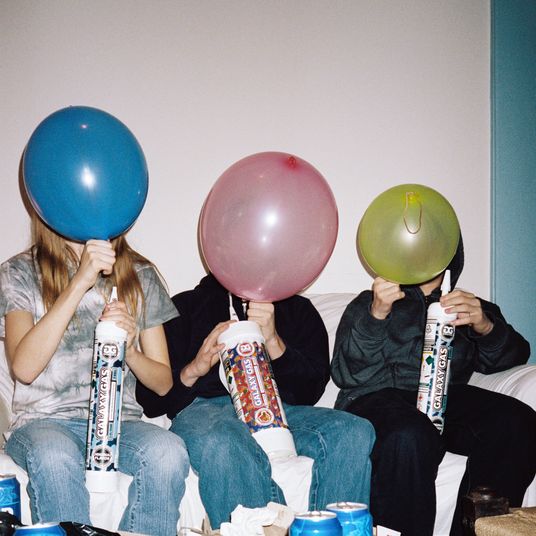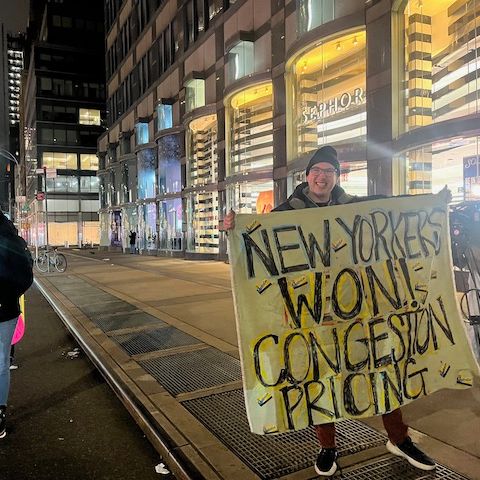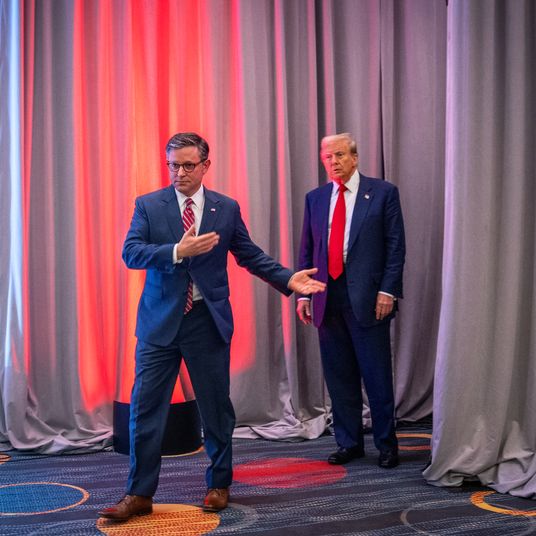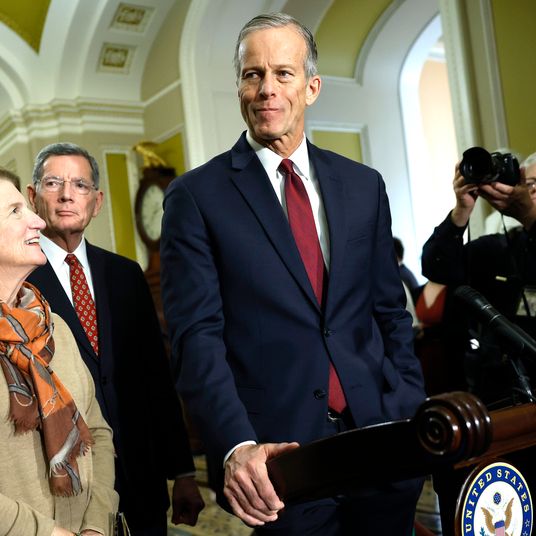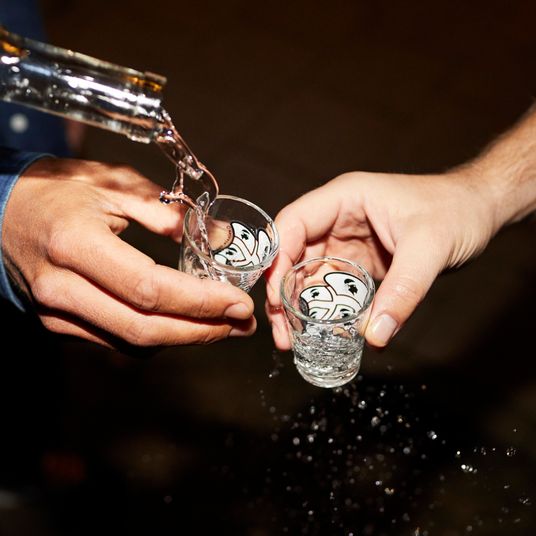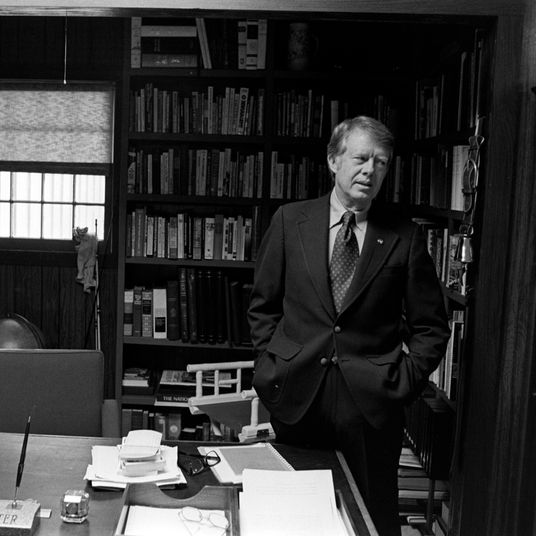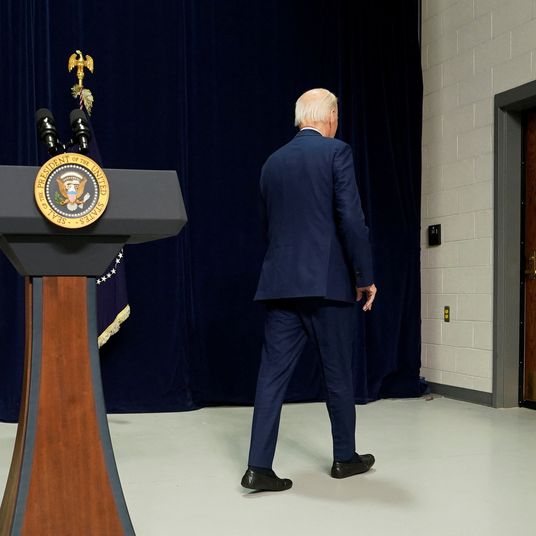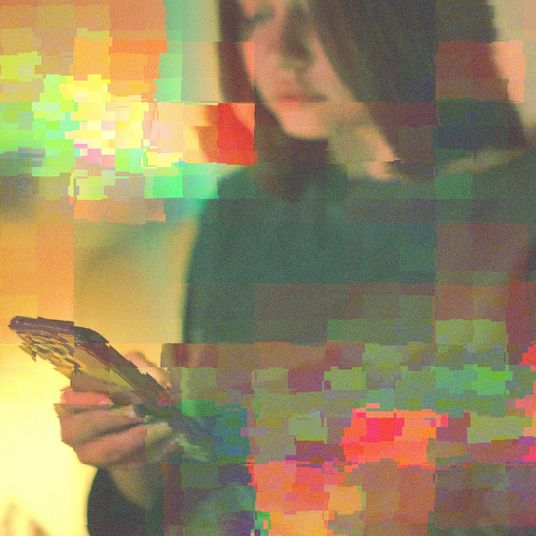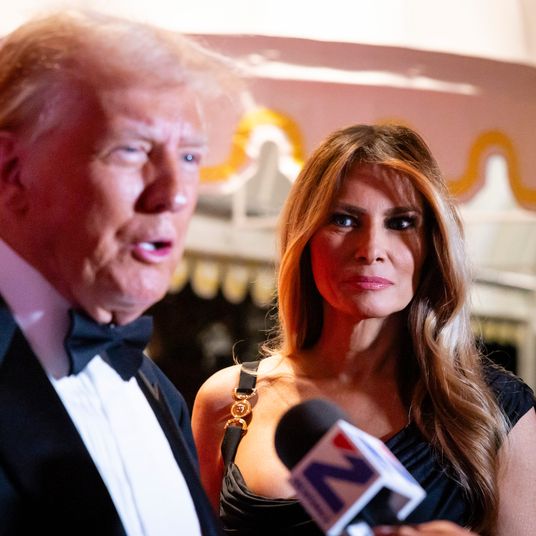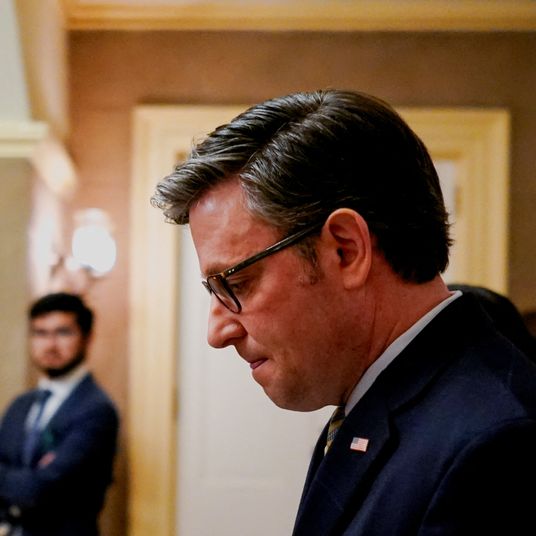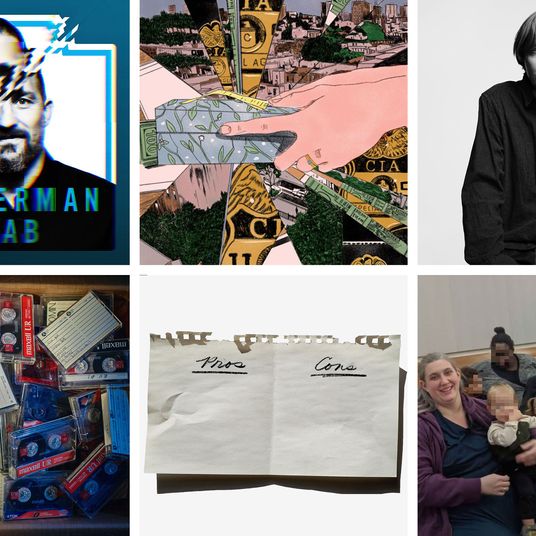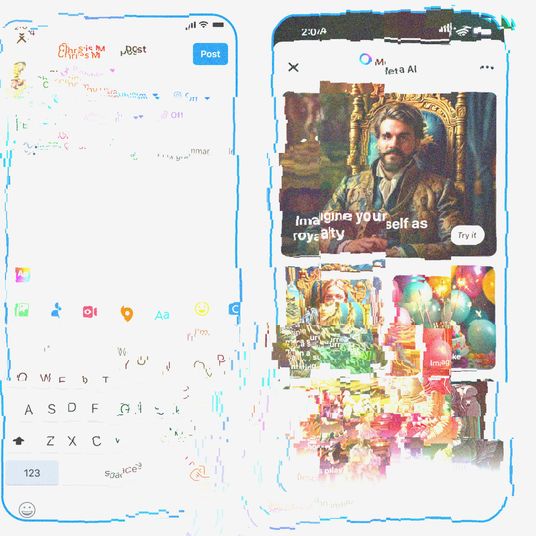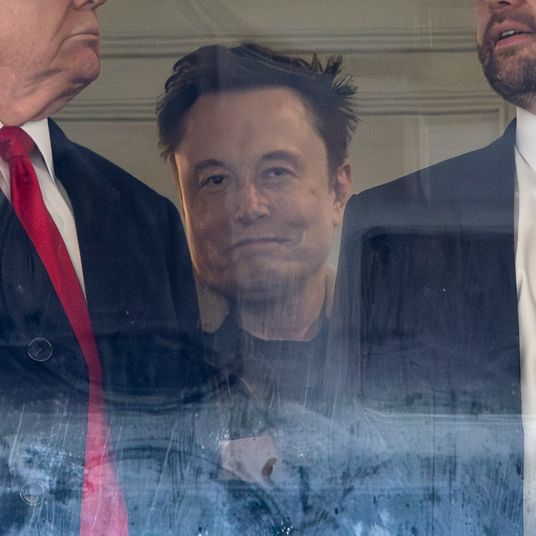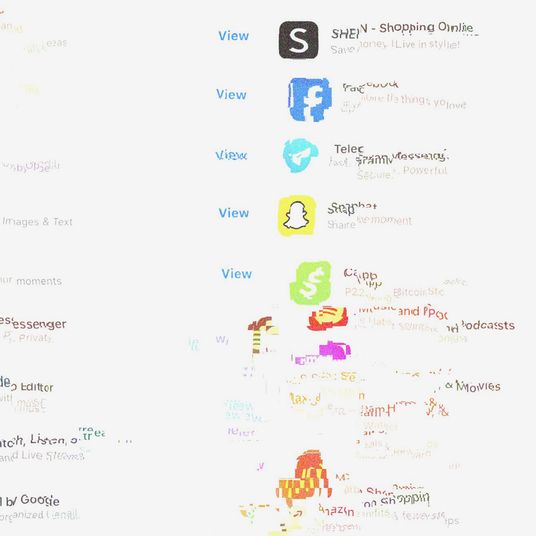
The Quiz Daddy is not, by his own admission, a pub-quiz guy. (He’s not much of a drinker.) Nevertheless, he is here at Amity Hall, an Irish pub in Greenwich Village, trying to remember the ship that took Charles Darwin to the Galápagos. “HMS Majesty?” the Quiz Daddy ventures. “No, not that. Darwin’s ship … ” He trails off, and we sit in hard-thinking, pub-quiz silence.
This is an unfamiliar position for the Quiz Daddy. He is by trade an asker, not an answerer, of questions. In 90 minutes, at 9 p.m., 700,000 people will pick up their phones and open an app called HQ Trivia to play the second of two daily live games. The Quiz Daddy — born Scott Rogowsky — will be their host. For now, though, he’s simply another contestant at a bar trivia night. “The Beagle? Yeah, that sounds right.” I write it down (I’m his Quiz Partner for the evening).
What makes someone a “Quiz Daddy” as opposed to a mere game-show host? (A separate but related question: Why did three straight female friends try to crash our interview?) In person at 7 p.m., slouched in a yellow HQ sweatshirt, Rogowsky is an affable but uncommanding presence; on my iPhone at nine, done up in a sharp suit, he exudes an outsize, off-kilter energy, all raised eyebrows and widened mouth. With a stuttery delivery that almost seems to mimic the game’s not-infrequent glitches, a fondness for corny jokes, and a trace of a New York accent, he’s a Borscht Belt Max Headroom. Some find Rogowsky unlikable; I (and many who tune in) find him compulsively watchable. (Rogowsky says he’s “not fully convinced” anyone likes him. “I tend to dwell on the negatives.” He knows he has fans, but “a lot are in high school.”)
For all his off-the-cuff weirdness, Rogowsky is serious about his work: “I put hours of prep into this sometimes.” It’s mostly research into the questions, but, yes, he prewrites many of his puns. “I’m doing my best to entertain,” he says. What he offers is a louche nerdiness, merging the showmanship of a talk-show host with the direct-to-the-camera intimacy of a vlogger.
Nine months ago, Rogowsky, 33, was ready to leave New York. After a decade of struggling on the margins of the city’s comedy scene — not coincidentally, hosting a self-produced online talk show, Running Late With Scott Rogowsky — he planned to give L.A. a try. Then he had an audition. With … an app?
The app was HQ, the product of an “app studio” called Intermedia Labs, founded by the Vine creators Rus Yusupov and Colin Kroll. The premise is simple: Every day, at 3 p.m. and 9 p.m. EST, you open the app and answer 12 increasingly difficult questions, delivered by a wisecracking host. (Which of these animals is not a source of ivory? Walrus, rhino, elk. The answer is rhino.) Get one wrong and you’re out; get all 12 right, and you split that game’s cash prize with your fellow winners (the highest amount divvied up so far has been $18,000). There is no catch. The app is free, unless you’re one of the VCs who invested — the awards come directly out of the millions Intermedia raised from sponsors such as Lightspeed Venture Partners, the first Snapchat investor. HQ doesn’t make money now, but if you’re regularly getting 700,000-plus young people to stare at their phones for ten minutes, there are a bunch of big corporations that would like to pay you for some of that attention.
“I approach auditions like, Welp, probably not going to get this,” Rogowsky says. Indeed, when the HQ offer came, he’d given up his New York apartment for the L.A. move, which is why he commutes to the game’s Soho studio on Metro-North: He’s living with his parents in Westchester. “Not in the basement,” he clarifies.
For this reason and others, the months since he took the gig have been trying. “I have no time for anything,” he laments; his sleeping habits are “horrendous.” Also, there was the public threat to fire him. In November, Rogowsky gave an interview to the Daily Beast. When the reporter contacted his boss, Yusupov, for comment, Yusupov complained that the app wasn’t about its host: If the article was published, “Scott could lose his job.” After an outpouring of support for Rogowsky on Twitter (and in the app’s built-in chat), Yusupov apologized.
After all, Rogowsky’s now a celebrity. “Four people dressed as me for Halloween this year,” he says, sounding awed. Better yet, “I basically have agreed to terms” on an ongoing deal, he says, the length of which he can’t specify.
He’s appeared on Good Morning America and NBC Nightly News; on New Year’s Eve, he popped up in a tux on my television on ABC’s show from Times Square. Then he materialized again when a guest at my party broadcast a special 11:45 p.m. edition of HQ from his phone to my Apple TV. And nearly everyone stopped to play. In certain social circles — high-schoolers, college students, millennial East Coast professionals — you can set your watch by the moment people’s faces suddenly drop to look at their phones.
This isn’t necessarily as dystopian as it sounds: An appealing feature of HQ is its insistence on appointment times in an on-demand, asynchronous world. You literally can’t play HQ alone; even if you’re physically by yourself, masses of others are with you. And so is Scott. “There are some people who are, like, I never get past Q1 or Q2, but I just like to see a man talking to me! I’m lonely!” And, of course, some of the app’s success can be chalked up simply to the fact that twice a day a little man shows up inside it to give you a chance at free money.
For the record, Rogowsky would be decent on Jeopardy! After an early stall on the HMS Beagle, he mows through the round with assurance: The democratic constitution of what country was signed in 1978? Spain. “Can’t Help Lovin’ Dat Man” is from which musical? Show Boat. “I love books of miscellany and random facts and knowing shit,” Rogowsky says. “I know a little bit about a lot of things. I don’t go very deep in any one field, except maybe ’90s baseball.” We are rewarded with a perfect score: 11 out of 11.
It’s after eight, and Rogowsky has to rush off. He can’t take me to the studio, or tell me anything about it. The company wants to maintain whatever competitive advantage it can about HQ’s technical setup and filming process, he explains. All he can say is that it plans to keep growing: “Ideally, we can give out a million dollars every time. That’s what they’d love to get to.”
But the point isn’t just to be the biggest app on the iPhone. It’s to be the biggest game show on the planet, period. Or maybe just the biggest entertainment property, period. HQ is compelling because it feels like an artifact from one possible future, a glimpse at how all entertainment might look in decades to come — pushed to your phone for 15 minutes, twice a day, with a host who talks directly to you. And millions of fellow viewers. “Vine, at its peak, had 100 million users,” Rogowsky says. “I think they’d need a server the size of Rhode Island to make it work.” But if the engineers can figure that out? “This is bigger than TV.”
*This article appears in the January 8, 2018, issue of New York Magazine.





